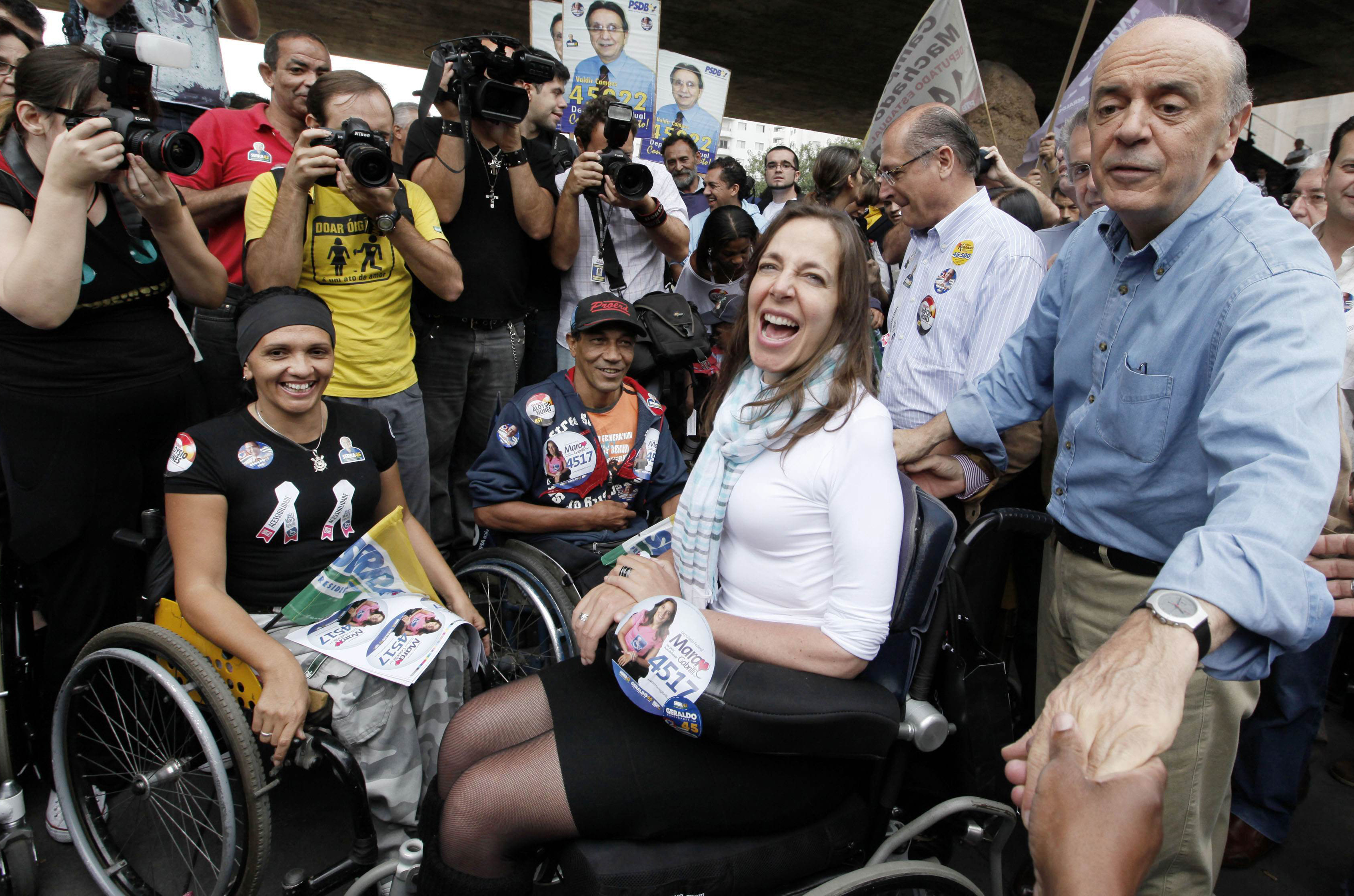Brazil set to pick Lula’s successor
Candidate of outgoing president’s party looks set to win Sunday’s poll, but the opposition is seeking to force run-off.

 |
| Rouseff needs more than 50 per cent of the vote to avoid a run-off against her closest challenger [Reuters] |
Brazilians are preparing to go to the polls to pick a successor to the hugely popular Luis Inacio Lula da Silva, the outgoing president.
Opinion polls suggest that Dilma Rouseff, the candidate from Lula’s Workers’ Party and the president’s former chief of staff, will win Sunday’s election, but some obsevers have said that she could need a second round run-off to defeat Jose Serra, her main challenger.
Rouseff needs more than 50 per cent of the vote in the first round to avoid facing her closest challenger in another poll on October 31.
Lula has dominated campaigning despite being barred by the constitution from running for a third consecutive term and Rouseff joined the outgoing president in his hometown of Sao Bernardo do Campo on Sao Paulo’s southern outskirts on Saturday ahead of the election.
The president enjoys an 80 per cent popularity rating unprecedented in Brazilian politics and many voters are prepared to support Rouseff on his endorsement. For her part, Rouseff has pledged to continue many of her mentor’s investor-friendly policies.
Al Jazeera’s Latin America Editor, Lucia Newman, reporting from Sao Paulo, said that the main change in Brazil after the election was likely to be the gender of the president.
[Rouseff] is very much the candidate of continuity. She is promising no more, no less, than to President Lula’s economic, social and foreign policies,” she said.
‘Lower politics’
However, her domination of the polls has been threatened by allegations of ethics violations by a former aide and internet rumours.
In Sao Bernardo do Campo, the former leftist rebel who has never held an elected office hit out at what she said were underhand tactics by her rivals.
 |
| Serra, right, has struggled to close on Rouseff and is polling at about 31 per cent [Reuters] |
“In this campaign there have been sneaky lies that came from the lower world of politics, from those who didn’t have the courage to appear in public,” she told reporters. “But the population is mature.”
Two opinion polls released on Saturday indicated that Rouseff, who would become the country’s first female president, would just sneak home in the first round but the margin of error meant that victory on Sunday was far from ensured.
Rousseff had 51 per cent of valid votes, compared with 31 per cent for former Sao Paulo state Governor Serra in a survey by pollster Ibope, according to the Globo network’s website. A survey by the Datafolha firm showed her winning 50 per cent, compared with Serra’s 31 per cent.
“Candidate Dilma Rousseff has a chance of winning on Sunday as the latest Data Folha poll has shown. This victory is likely to happen with a small advantage, with a margin of two to four percentage points,” Ricardo Ismael, a political analyst, said.
“But there is also another possible scenario. Fifteen days ago we were not considering it, but now it is a possible outcome, that there may be a second round.”
Serra and Marina Silva, a former environment minister who is running third in the polls, have found themselves unable to get within striking distance of Rousseff in the polls laregly because of Lula’s enthusiastic stumping for his candidate.
Lula’s farewell
Lula himself had tears in his eyes on Saturday as he accompanied Rouseff.
“He is very moved because he did so much for us … He suffered what we suffered,” Cleila Santos, a 54-year-old health worker wearing the red of a Lula campaigner, said.
“We sure are going to miss him. He was everything in our lives, and we will never have another president like him,” she told AFP.
Programmes initiated by the outgoing leader are credited with lifting 20.5 million people from poverty since 2003 and boosting another 29 million into the middle class, creating new consumers who help drive the economy.
Voters in the world’s fourth most populous democracy will begin voting at 8am (11:00 GMT) on Sunday. They will also select candidates for congress and state governorships.
The nearly 20,000 candidates in Brazil’s 26 states and Federal District are identified by a number which they have been drumming into voters’ heads for the past months.